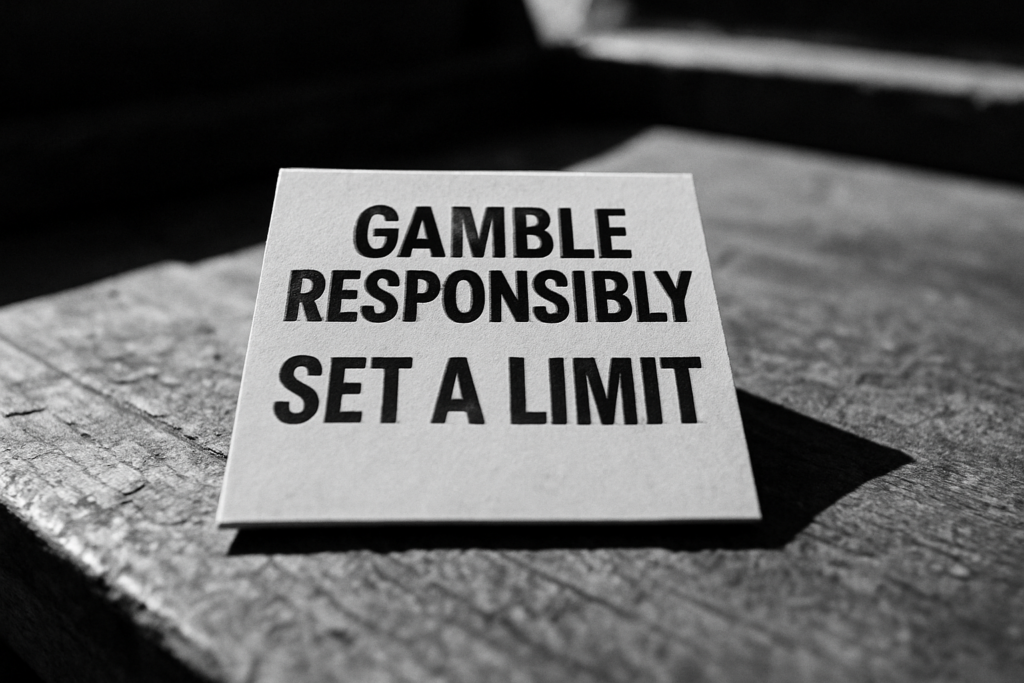Understanding The Science Of Self-Control
Self-control involves managing emotions, behaviors, and impulses to achieve goals or avoid negative consequences. In gambling, mastering self-control is essential to maintaining balance and making rational decisions.
What Is Self-Control?
Self-control represents the ability to regulate responses to external or internal triggers. It relies on cognitive and emotional processes operating within the brain’s prefrontal cortex. This region governs decision-making and impulse control, aiding in resisting urges.
Examples include avoiding chasing losses despite frustration or setting limits on spending to reduce financial risks. Research published in the “Journal of Behavioral Addictions” highlights how self-control strategies can mitigate impulse-related gambling behaviors.
The Role Of Self-Control In Gambling
Self-control ensures rational choices during gambling, reducing impulsive actions and emotional spending. It enables players to follow predetermined budgets, avoid excessive risk-taking, and disengage when emotions rise.
Instances like sticking to time limits, leaving after reaching a loss threshold, or not increasing bets during winning streaks demonstrate its role in smarter gambling. According to studies by the National Center for Responsible Gaming, self-regulation correlates directly with healthy gambling habits, significantly lowering the chances of problem gambling behaviors.
Strategies For Smarter Gambling
Smarter gambling involves being intentional with:
- actions
- maintaining control
- using well-defined strategies
to reduce risks. I focus on practical approaches to create positive and sustainable gambling habits.
Setting Limits And Boundaries
- Establishing clear limits ensures controlled gambling behavior.
- I always set financial and time limits before engaging in gambling, ensuring I don’t exceed what I can afford to lose.
- I might allocate $50 for entertainment purposes and stop once it’s spent.
- I also decide on a time limit, like one hour, and stick to it.
- Setting self-imposed boundaries helps regulate pace and decision-making.
- I avoid borrowing money or tapping into essential savings for gambling, maintaining financial security.
Recognizing Emotional Triggers
Understanding how emotions influence gambling decisions strengthens self-control. I monitor my feelings to identify triggers such as stress, excitement, or frustration. For instance, if I feel upset, I delay gambling to prevent acting impulsively.
Pausing during heightened emotions lowers the risk of irrational decisions. I prefer engaging only when calm, ensuring rational thinking guides the process.
Utilizing Behavioral Techniques
Behavioral strategies reinforce discipline while gambling. I use tools like self-exclusion programs or apps to enforce breaks when gambling feels overwhelming. For example, I might activate a cooling-off period through my gambling account settings.
I also incorporate mindfulness exercises like deep breathing to stay centered. By focusing on the experience without emotional investment, I reduce risks tied to impulsiveness.
The Psychological Principles Behind Self-Control

Understanding psychological principles is key to developing self-control and making intentional decisions while gambling. Two critical factors are delayed gratification and habit formation.
The Power Of Delayed Gratification
Delayed gratification involves resisting immediate temptations to achieve better outcomes later. This principle relies on activating the prefrontal cortex, which helps regulate impulses and promotes thoughtful decision-making. In gambling, practicing delayed gratification might mean walking away from a momentary win to avoid risking it on subsequent bets. Research published in the “Journal of Behavioral Decision Making” highlights that individuals with a strong ability to delay gratification often exhibit better financial and emotional outcomes.
To apply this, I focus on my long-term goals rather than short-term rewards, such as preserving my budget or maintaining a positive gambling experience. For example, avoiding spontaneous high-risk bets ensures I don’t jeopardize my financial stability for fleeting excitement.
How Habit Formation Plays A Role
Habits, formed through repeated behaviors, significantly influence self-control. The basal ganglia in the brain help automate actions, making it easier to maintain positive routines. In gambling, forming habits such as setting daily spending limits or taking regular breaks can create consistent patterns promoting self-discipline. A 2021 study in “Addiction Science & Clinical Practice” indicates that structured habits reduce the likelihood of impulsive gambling behaviors.
When I establish beneficial habits, they create a framework that requires less mental effort to sustain self-control. For instance, I routinely set predetermined boundaries before gambling, ensuring these actions become second nature over time. Replacing negative habits, like chasing losses, with positive ones further solidifies my control over decisions.
Benefits Of Smarter Gambling Decisions
Smarter gambling decisions offer significant advantages, contributing to both financial and personal well-being. These benefits reinforce the value of practicing self-control and responsible gambling habits.
Financial Stability
Smarter decisions help maintain financial stability by preventing unplanned losses. Allocating a fixed budget for gambling ensures spending stays within affordable limits. For example, setting a daily or session-based cap minimizes the risk of overspending. Regularly tracking expenses also keeps finances transparent and controlled.
Reducing impulsive behaviors like chasing losses safeguards savings and reduces financial stress. Self-control strategies, such as pausing between bets, allow me to assess my choices rationally instead of making emotion-driven decisions. Over time, these practices support better money management and long-term financial security.
Improved Mental Health
Responsible gambling fosters improved mental health by reducing stress and promoting emotional balance. Avoiding excessive losses minimizes guilt, frustration, and anxiety, which often accompany reckless gambling. For instance, sticking to pre-set limits prevents the emotional toll of losing more than intended.
Mindfulness practices enhance focus and self-awareness, helping me stay calm and avoid compulsive behavior. Regular breaks during gambling sessions prevent mental exhaustion and maintain mental clarity. Research suggests that prioritizing self-care and maintaining boundaries lower the risk of problem gambling, improving overall well-being.



 Steven Alfonso – Senior Gambling Analyst
Steven Alfonso serves as the Senior Gambling Analyst at Gamble Wise Roll, bringing a wealth of industry knowledge and analytical expertise to the platform. With a background in gaming economics and market research, Steven delves into the latest trends shaping the gambling world, from emerging skill-based betting opportunities to regulatory shifts and technological advancements. His in-depth reports provide a comprehensive look at how the industry is evolving, offering valuable insights for both casual players and seasoned professionals. Passionate about data-driven decision-making, Steven ensures that Gamble Wise Roll remains at the forefront of industry analysis, helping readers understand the risks, opportunities, and strategies that define modern gambling.
Steven Alfonso – Senior Gambling Analyst
Steven Alfonso serves as the Senior Gambling Analyst at Gamble Wise Roll, bringing a wealth of industry knowledge and analytical expertise to the platform. With a background in gaming economics and market research, Steven delves into the latest trends shaping the gambling world, from emerging skill-based betting opportunities to regulatory shifts and technological advancements. His in-depth reports provide a comprehensive look at how the industry is evolving, offering valuable insights for both casual players and seasoned professionals. Passionate about data-driven decision-making, Steven ensures that Gamble Wise Roll remains at the forefront of industry analysis, helping readers understand the risks, opportunities, and strategies that define modern gambling.
